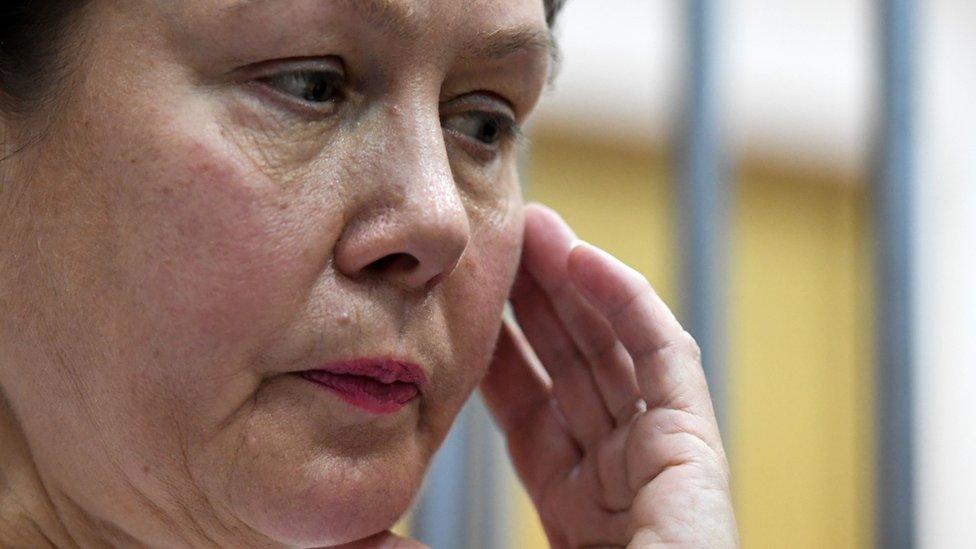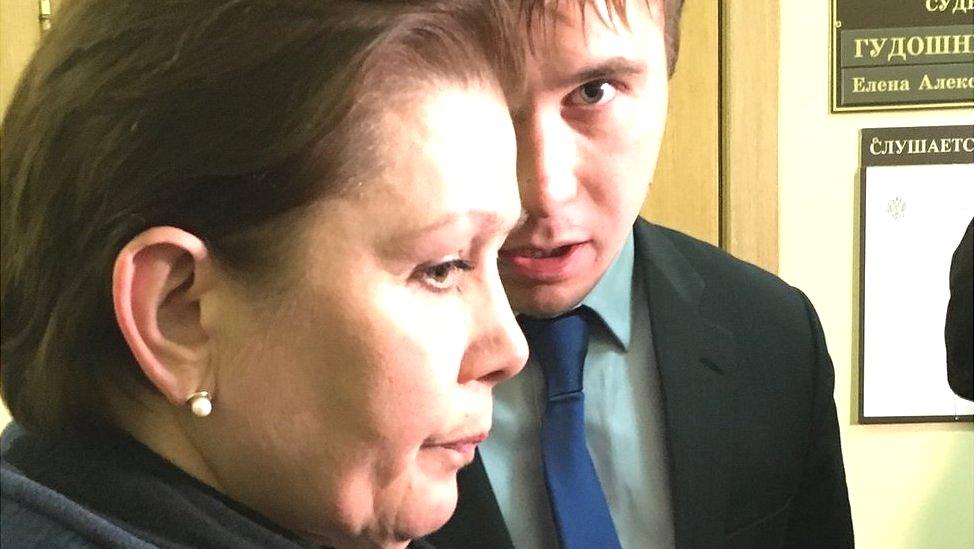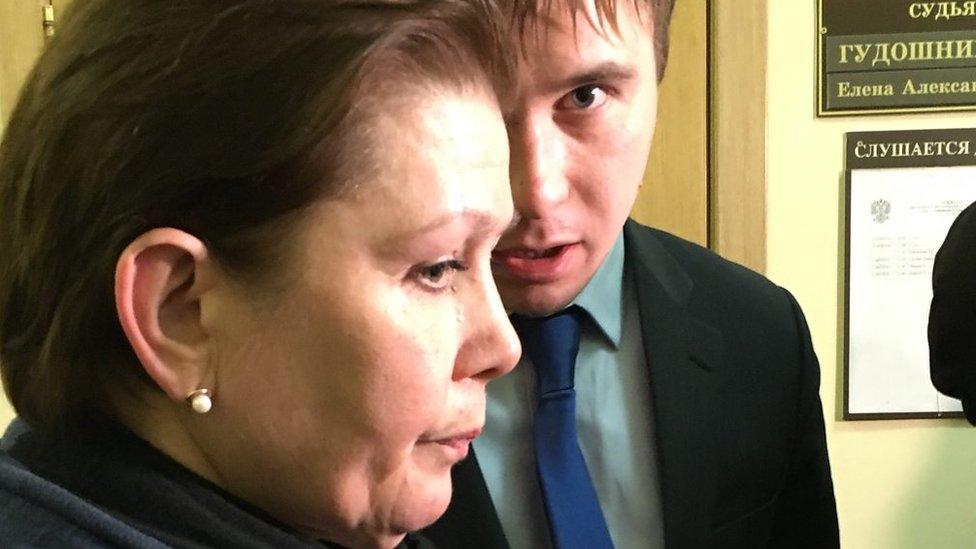Ex-head of Ukraine library in Moscow Natalia Sharina guilty
- Published

Natalia Sharina was put under house arrest after the search of the library
The former head of a Ukrainian library in Moscow has been found guilty of extremism and embezzlement, in a case she says is politically motivated.
Natalia Sharina was arrested in 2015 after a search of her Library of Ukrainian Literature found what officials described as anti-Russian propaganda. She denied the charges.
Her arrest came amid tensions between Russia and Ukraine following the annexation of Crimea in 2014.
Rights groups have condemned the case.
Natalia Sharina, who is Russian, was charged with inciting hatred against Russians and also of embezzlement of library funds.
A judge in a Moscow court gave her a four-year suspended sentence. She said she would appeal.
Speaking in court, Natalia Sharina, 59, said she was shocked, and insisted that the banned literature had been planted in the library by police.
"The state prosecutor admitted herself during the proceedings that this was a political case," she told reporters after the ruling.
"A librarian is such a good, peaceful profession. You sit there, reading books. So the fact that this is happening in the 21st century will probably be remembered in decades to come - like we remember the doctors plot and 1937," she said, referring to Stalin-era public show trials.

At the court: Sarah Rainsford, BBC News, Moscow

It took the judge well over two hours to read her guilty verdict. Every argument presented in the librarian's defence was dismissed, including testimony by witnesses who said they saw police planting the controversial material.
The prosecutor described Natalia Sharina as an agent of Ukrainian nationalism. Her lawyer, Ivan Pavlov, called the high-profile case a farce that was seeped in politics.
She will now have her electronic tag removed, after 20 months under house arrest.
But the library she once ran - that was a symbol of Russian-Ukrainian friendship - has been dismantled. "I'm sorry for the library. That what was created has been destroyed. The books have been packed up and removed," she said.

Her library was closed in October 2015, and her trial started in November 2016.
Human rights group Amnesty International said the case "highlights serious flaws in the independence of Russia's judiciary".
"The prosecution has exploited the highly charged anti-Ukrainian atmosphere that is prevalent in Russia at the moment, while the court simply dismissed key evidence for the defence," Amnesty's Denis Krivosheev said in a statement., external
- Published2 November 2016

- Published3 November 2016

- Published25 August 2016

- Published25 March 2024
